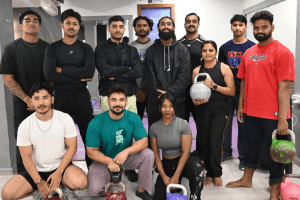Mastering Interpersonal Skills & Social Intelligence for Personal Trainers

Introduction: In the dynamic field of personal training certification, technical expertise is crucial, but mastering interpersonal skills and social intelligence is equally vital. Building strong connections with clients enhances motivation, trust, and overall success in achieving fitness goals.
Understanding Interpersonal Skills: Effective communication, active listening, and empathy form the foundation of interpersonal skills. Personal trainers must be adept at conveying information clearly, understanding client needs, and fostering a supportive environment.
Building Trust and Rapport: Establishing trust is paramount. Personal trainers should create a safe space where clients feel comfortable sharing their concerns, goals, and personal challenges. Building rapport fosters a positive client-trainer relationship.
Tailoring Communication Styles: Every client is unique, requiring personal trainers to adapt their communication styles. Some clients may respond better to encouragement, while others prefer a more direct approach. Flexibility in communication is key.
Non-Verbal Communication: Body language, gestures, and facial expressions contribute significantly to communication. Personal trainers should be mindful of their non-verbal cues, ensuring alignment with the intended message and creating a positive atmosphere.
Cultural Sensitivity: Understanding and respecting cultural differences is essential. Personal trainers working with diverse clientele must be culturally sensitive to ensure inclusivity and avoid misunderstandings.
Social Intelligence in Personal Training: Social intelligence involves perceiving, understanding, and managing emotions, both in oneself and others. Personal trainers with high social intelligence can navigate social situations effectively, enhancing client engagement.
Emotional Intelligence in Practice: Emotional intelligence includes self-awareness, self-regulation, motivation, empathy, and social skills. Personal trainers can use emotional intelligence to connect with clients on a deeper level, addressing emotional aspects related to fitness journeys.
Motivational Strategies: Motivating clients requires more than just prescribing workouts. Personal trainers should identify individual motivators, aligning fitness goals with personal aspirations, and providing continuous encouragement throughout the journey.
Conflict Resolution: Conflicts may arise during training. Personal trainers equipped with conflict resolution skills can address issues promptly, ensuring that challenges do not hinder progress. Open communication and a problem-solving mindset are crucial.
Effective Goal Setting: Collaborative goal setting involves understanding client objectives, breaking them down into achievable milestones, and regularly reassessing progress. Personal trainers should guide clients in setting realistic, measurable, and time-bound goals.
Feedback and Positive Reinforcement: Constructive feedback, coupled with positive reinforcement, is a powerful tool. Acknowledging achievements, no matter how small, boosts motivation and enhances the client-trainer relationship.
Adaptability in Training Plans: Clients' needs and preferences evolve. Personal trainers should be adaptable, modifying training plans to accommodate changing circumstances, injuries, or shifts in fitness goals.
Networking and Building a Client Community: Creating a sense of community among clients fosters a supportive environment. Personal trainers can facilitate networking opportunities, where clients share experiences, challenges, and successes.
Continued Education in Interpersonal Skills: Just as technical skills evolve, interpersonal skills require ongoing development. Personal trainers certification should invest in workshops, courses, and resources to stay abreast of the latest strategies in communication and social intelligence.
Conclusion: Mastering interpersonal skills and social intelligence elevates personal trainers from fitness instructors to trusted mentors. The ability to connect, communicate, and understand clients on a deeper level is the key to fostering lasting relationships and achieving sustained fitness success






